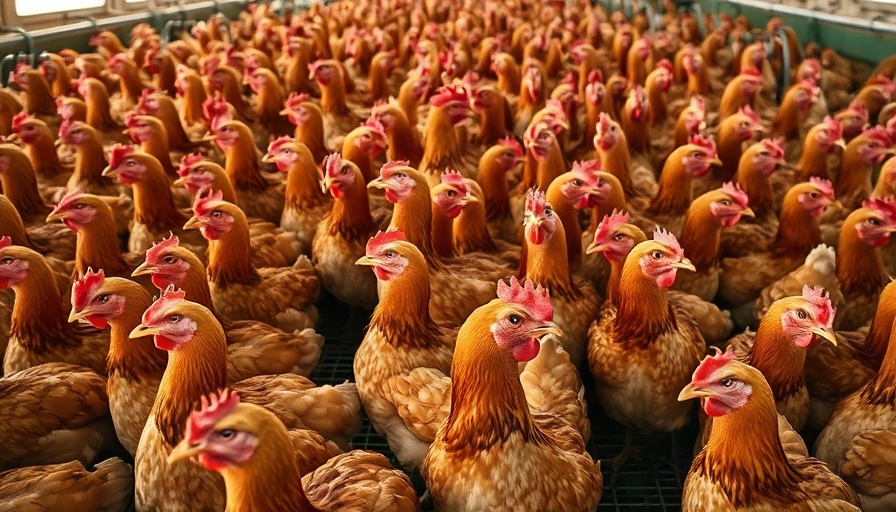
Understanding the Challenges of Avian Influenza Housing Orders
With the recent enforcement of a housing order in various regions of England due to avian influenza, poultry producers are faced with unique challenges when caring for free-range layers. As mobile creatures accustomed to wide-open spaces, housing these birds is a significant change that can lead to various risks. Understanding these risks and implementing the right strategies is essential for maintaining bird welfare and farm productivity.
Five Key Risks and Recommendations for Management
Here are five crucial areas where poultry managers can take proactive steps to mitigate risks:
1. Ventilation Management
Ventilation is vital, especially when pop-holes remain closed during the colder months. Poor ventilation can lead to a decline in litter quality and an increase in respiratory issues. Producers should adjust ventilation systems in buildings equipped with automatic controls to ensure optimal airflow. Regularly cleaning and replenishing litter is also recommended to maintain a healthy environment.
2. Addressing Injurious Feather Pecking
The stress from confinement can incite feather pecking among hens, a behavior that can be tough to control once it begins. Reducing lighting levels within legal limits can help mitigate stress. Providing sufficient environmental enrichment, like PECKstone or custom pecking blocks, is crucial to keep the birds engaged and minimize aggressive behaviors.
3. Respiratory Disease Management
Housing increases exposure to respiratory diseases such as Infectious Bronchitis (IB) and Mycoplasma. It is vital to continue using vaccines to protect flocks, an approach that should remain consistent throughout the housing order. Regular veterinary consultations can support this effort and ensure flocks stay healthy.
4. Prevention of Smothering
During barn access times, flock management is critical to prevent crowding that could lead to smothering incidents. Poultry farmers are encouraged to actively monitor bird behavior and distribute objects in the enclosure to break up large clusters of birds.
5. Maintaining Gut Health
For optimum egg production and overall health, it is vital to support the gut health of housed birds. Nutraceuticals like ABC pH can assist in managing harmful bacteria, fostering a thriving gut microbiome essential for egg quality and general well-being.
Conclusion
Adhering to these recommendations during a housing order can significantly enhance the welfare of free-range layers and ensure compliance with biosecurity regulations. By prioritizing bird health, producers not only foster better animal welfare but also protect their livelihoods amidst these legislative changes.
 Add Row
Add Row  Add Element
Add Element 



 Add Row
Add Row  Add
Add 
Write A Comment